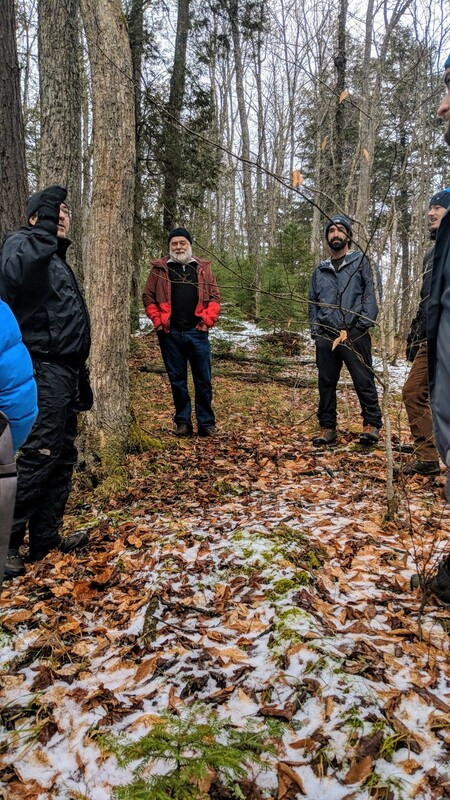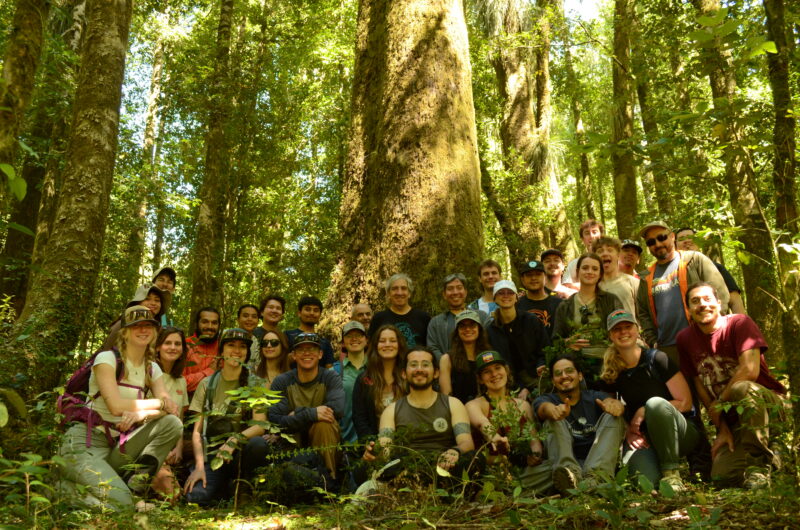Andrew Carrier
OSU graduate student Andrew Carrier and his peers from around the world convened in Canada to discuss complex adaptive systems science in forestry.
In 2019, seven graduate students and one professor set out to Montréal, Canada. There, they met up with students and professors from the University of Quebec in Montreal and started a week-long field course on managing forests as complex adaptive systems. Follow one student’s experience abroad here!
Andrew Carrier is working toward a Masters in Natural Resources. He began his journey as an online student while in the Air Force and now works in the world of urban forestry. He chose this program abroad because he thought it would offer some good field experience. Andrew plans to continue working in urban forestry and arboriculture in the future, so he knew this course would help him get some more forestry experience.
This program was a unique one in that it was originally intended to be held in southern Chile, but due to the civil unrest in the country in late 2019, it was re-located to Montreal. This location switch was made possible by a strong partnership with the University of Quebec in Montréal, and ensured the program did not have to be cancelled despite the challenges that arose. This really changed things for Andrew. He personally was drawn to the original location of the program, but found that engaging with the professors and other students in the program turned out to be the best part. He was also interested in the curriculum of the course. The OSU professor of the course, Dr. Klaus Puettmann, specializes in silviculture and working in forest and ecosystem management through the lens of complex adaptive systems. This is a cutting-edge field, and Dr. Puettmann shared this framework with Andrew and the others throughout the week. Together, they got out into the forest and collaborated in small groups to work through problem sets applying complexity science to real-world issues. Andrew said while working in small groups can always be a challenge, he knows that what he learned from his group will follow him to future.
He was surprised to learn how many similar forestry challenges can exist regardless of differing governmental frameworks and that the approaches to suggesting improvements vary as well.


While Canada and the US may be similar, Andrew said he thought a lot about the effects of different government regulations on forestry. He was surprised to learn how many similar forestry challenges can exist regardless of differing governmental frameworks and that the approaches to suggesting improvements vary as well. He learned about new aspects of timber management and insights into how forests may react to climate change, while also hearing about some possible novel solutions to the new problems arising from climate change. Andrew said everything he learned helped him take home a new perspective, offering him not only the opportunity to gain knowledge he could take back home, but the ability to inform a more educated opinion on forestry. He said that was something only afforded by traveling. Overall, his favorite parts of the trip were collaborating with his fellow students and hearing from the professors, who added so much to the course he felt he could not have gotten online as an Ecampus student. He also got to network with people abroad working on the issues he is interested in, which he feels will be helpful in the future even if he does not work abroad again. Andrew said the course exceeded his expectations and he definitely recommends this course to other students, regardless of the location.






